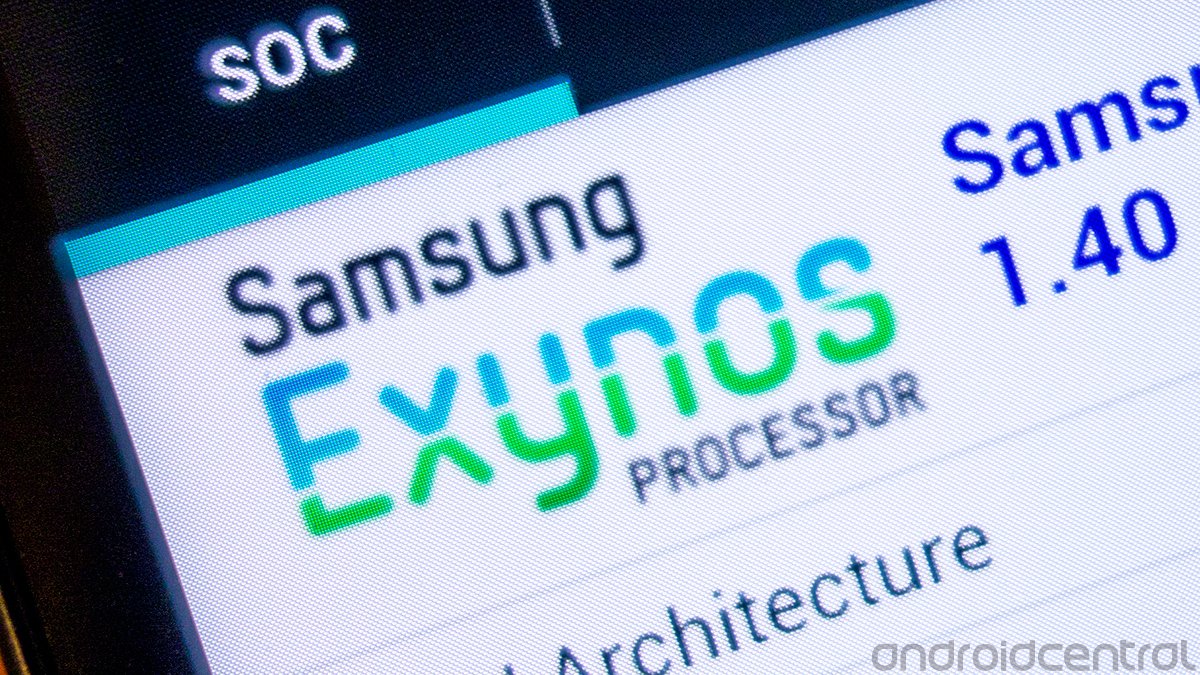Samsung's plan to supercharge its Exynos chips is exactly what the mobile industry needs

Get the latest news from Android Central, your trusted companion in the world of Android
You are now subscribed
Your newsletter sign-up was successful
Most of us only want one thing from the chip inside of our phones, and that's the power to do everything we want as fast as we want.
Depending on how you use your phone and what model it is, you might not be getting what you want. Our phones do a lot, even when we're not asking them to do something ourselves. There are hundreds of tasks running through your phone's application processor at all times and even more when you're actually using it. That's a lot of work to ask of a device powered by a relatively small battery.
If you want the fastest phone you can buy today, it will have a Snapdragon chip inside.
Qualcomm has things figured out. The Snapdragon line of SoCs (System on a Chip) are some of the best mobile chipsets that you'll find. That's because Qualcomm spends a lot of money taking ARM's base designs and customizing them into tiny powerhouses. When you combine a fast CPU with a fast and powerful graphics processor and assorted microprocessors for AI or spatial awareness, you have the beginning of an awesome chip for a smartphone.
We've witnessed the rise and fall of Samsung's own Exynos line of SoC. While the current generation is a solid and dependable chip that you'll find in plenty of products including phones, it just doesn't stack up to what Qualcomm or even MediaTek is doing in terms of user performance. We want our phone to be solid and dependable, but we also want it to be blazing fast.

If rumors about Samsung and its partners breathing new life into the Exynos line are to believed (and I think they are), Exynos could be back in a very big way. We already know that Samsung has a partnership with AMD for a custom high-performance GPU that should rival Qualcomm's Adreno. AMD is more than a company that makes PC graphics cards, too. It designs and licenses world-class application processors built around its custom core design and you'll see an AMD AP in the PS5.
Samsung has partnered with AMD to include a custom Radeon-powered GPU inside future versions of its Exynos SoC.
But a fast GPU is only part of the package, and if the CPU can't perform it's not a very big deal. This is where Arm Holdings enters the stage. Arm is the company that holds license and designs the CPU that every phone uses. Qualcomm, Apple, and MediaTek all use ARM's CPU design and customize it themselves to tune the performance. Samsung does, too, with its Exynos brand but just hasn't been able to take the next step.
Arm, though, has an all-new program that happens to have Samsung as one of its first partners/clients — the Cortex-X program. Cortex-X is a new ARM core platform design that allows customers to participate during the entire manufacturing and design process. The initial offering of the Cortex-X program delivers a 30% performance boost compared to the standard ARM design, delivers twice the AI processing power, and promises even better battery life. By any metric, the Cortex-X program already looks like a winner.
Get the latest news from Android Central, your trusted companion in the world of Android
If Samsung works with Arm to build custom CPU cores for the Exynos platform and works with AMD for extreme GPU performance, we'll see some amazing Exynos SoCs in phones like the Galaxy Note. Chips that can overdeliver and are powerful enough to drive tablets and Chromebooks that are as fast as we want them to be.

This is incredibly important. Not just for us, either. For the past few years customers outside of North America, where Samsung typically releases phones that use an Exynos SoC, have lamented the fact that their Galaxy phones don't offer the same performance and battery life of the Qualcomm Snapdragon-powered version we see in the U.S. and Canada. Considering the price is the same, nobody can blame them. A super-charged Exynos design may turn that around, and here in the States we'll be the ones who want a different processor.
Making customers happy is good for both the customer and for Samsung, but an Exynos SoC that's comparable to a Snapdragon will also break Qualcomm's hold over the mobile industry as a whole. Outside of Apple, Qualcomm is the driving force behind mobile tech. We want to see a Snapdragon chip inside our phones because they are arguably the best. That means almost every major phone manufacturer is a Qualcomm customer.
Arm's Cortex-X program could make Exynos something we want to see inside of our phones and break Qualcomm's defacto monopoly.
While companies like Apple and MediaTek, as well as Samsung of course, offer enough competition to keep Qualcomm from having a monopoly in this space, the company still holds tremendous power over every Android phone maker. Qualcomm is a requirement if you want a phone that works everywhere because of its network technology patents and that's fine. The company spent a lot of time and money to develop the tech and is finally licensing out at an appropriate cost. But Qualcomm also knows its chips deliver performance far above what its competition can offer and that Android phone makers will look to it first.
If Samsung Semiconductor (its division that fabricates chips) can offer an Exynos that does everything as good or better than a Snapdragon, everything changes. We'll have several companies duking it out to deliver what we want at a price we can afford, and as consumers, this is exactly what we want to see.

This is the Note to get in 2020
Say what you will about the regular Note 20, but the Galaxy Note 20 Ultra is about as feature-rich as Android phones come. It has a premium glass/metal design, 120Hz AMOLED displays, impressive cameras, and a Qualcomm Snapdragon 865+ to power it all.

Jerry is an amateur woodworker and struggling shade tree mechanic. There's nothing he can't take apart, but many things he can't reassemble. You'll find him writing and speaking his loud opinion on Android Central and occasionally on Threads.
